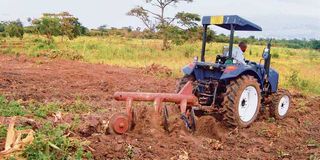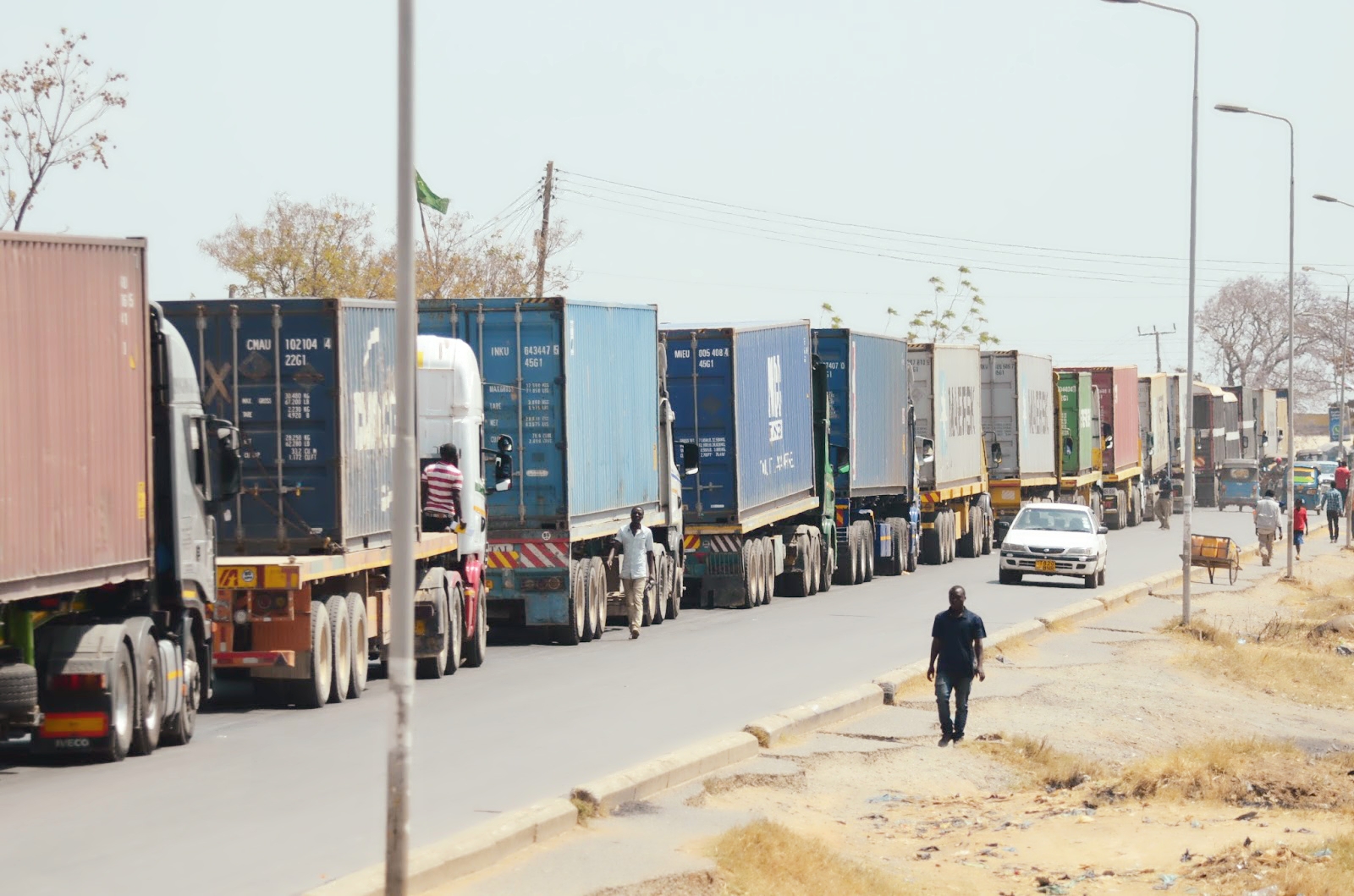Prime
Seeding the future through Africa Food Systems Forum 2023

A farmer in Geita uses a tractor to plow his land. More work is needed to improve Africa’s food systems. PHOTO | FILE
What you need to know:
- But beyond its role as a marketplace for ideas and partnerships, it illuminates the pressing need for systemic changes in Africa's food systems, which faces several challenges like post-harvest losses, lack of access to quality seeds, fertilizers, climate change and political instability.
The African continent is well endowed with arable land, and a large portion remains underutilised. The continent also has a young, dynamic workforce that represents the future. No wonder Her Excellency, President Dr. Samia Suluhu Hassan, will host the critical agriculture gathering of the year in Africa: The AGRF, the Africa Food Systems Forum 2023 (Sept. 5th-8th in Dar es Salaam). The AGRF 2023 Summit’s theme is Recover, Regenerate, Act: Africa’s Solutions to Food Systems Transformation.
The forum focuses on creating resilient, sustainable and equitable food systems. It serves as a platform for stakeholders; government officials, entrepreneurs, farmers, and thought leaders to come together and translate potential into actuality.
But beyond its role as a marketplace for ideas and partnerships, it illuminates the pressing need for systemic changes in Africa's food systems, which faces several challenges like post-harvest losses, lack of access to quality seeds, fertilizers, climate change and political instability. Despite these hurdles, the African Development Bank indicates that Africa has the greatest portion of uncultivated arable land in the world, which is estimated to be around 600 million hectares. That is a great, untapped opportunity for food production for Africa and the world.
A key aspect of the AGRF is its commitment to innovation. Digital technologies are the frontier of agriculture, and from satellite mapping for effective land use to mobile apps that allow farmers to access real-time market prices are innovations that can revolutionize traditional agricultural practices. African entrepreneurs are already making waves in agri-tech, but the AGRF elevates these local innovations to a continental and global platform.
Agriculture in Africa is mainly carried out by smallholder farmers, often women, who have been marginalized. The focus of the AGRF 2023 on gender equity and youth engagement posture a deeply rooted strategy aimed at unlocking the untapped human resource capital that is critical for the advancement of agriculture in Africa.
Women contribute between 60% and 80% of the labour force required for Africa’s food production, thus, any green revolution that ignores women is unjust and fundamentally flawed. However, innovation and inclusivity alone cannot solve challenges ahead rather regulatory frameworks and governmental policies play an integral role in shaping the future.
For instance, policies on land ownership can either empower local communities or subject them to exploitation by multinational corporations. Herein lies the utility of the AGRF, which acts as a conduit for policy advocacy, elevating the issues faced by grassroots to the tables of policymakers.
Climate change is a crisis that needs no introduction, and its implications for agriculture are dire. Shifting rainfall patterns and increasingly severe weather events threaten the sector. The AGRF now serves as an urgent call to action, bringing scientists, climate experts, and policymakers under one roof to formulate adaptive and mitigative strategies.
Moreover, the forum is instrumental in highlighting the importance of pan-African collaboration. Challenges in agriculture do not respect borders. Pests, climate change, and even market dynamics often spill over from one country to another. Therefore, a localized approach, no matter how innovative, will not suffice. The role of AGRF in fostering regional cooperation could be the linchpin in creating resilient and robust food systems.
Despite the superior ambitions and the pivotal role the AGRF plays, it’s not a magic bullet, transforming Africa’s food systems is a marathon, not a sprint. While the forum acts as a catalyst, the real work lies in the persistent application of its ideas, the sustained advocacy for policy changes, and the continued nurturing of inclusive platforms.
As we look forward to the next gathering, let us seek to be inspired and be the inspiration, for it takes a collective effort to sow the seeds of change. Together, we can reap a future where hunger will remain history.





